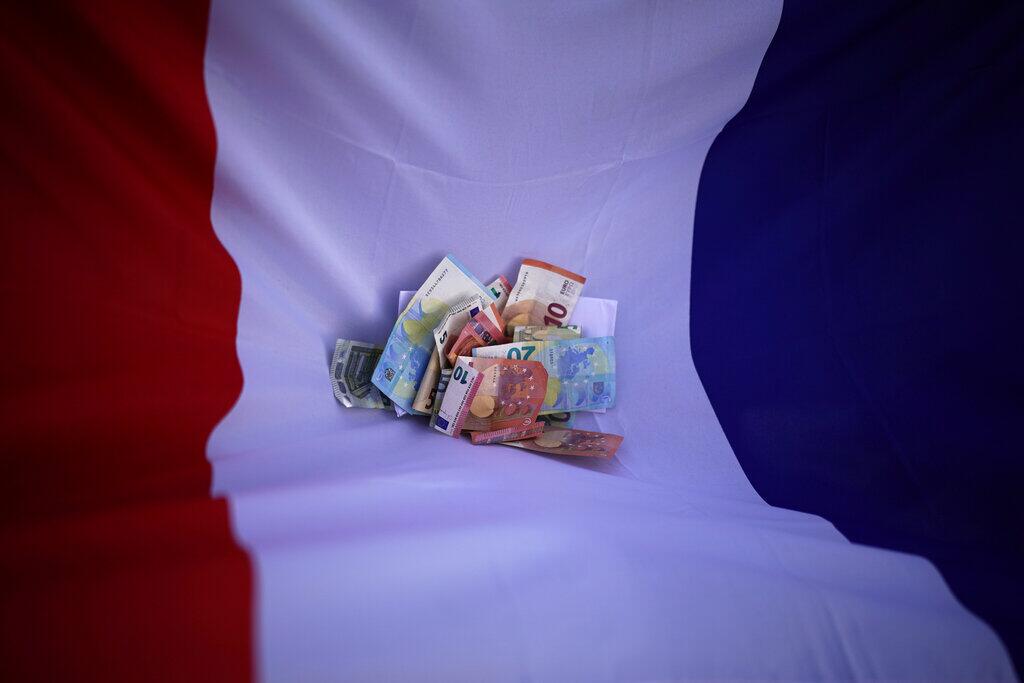Being French, living in Japan, but thankfully US educated, I wonder which country will go down the drain first? The more closely you look, the harder the answer is! Japan with its gargantuan debt is approaching default fast. Its long term debt is on the verge of being impossible to refinance. As the old dog warning said: "Is there life after death? Enter and you shall know!" Japan will undoubtedly enter the maw of financial hell sometimes in the coming months. A year or two at most.
But France is a close second in the race to bankruptcy. With its out of control budgets, financing extravagant pensions, social security, wars and a frailing empire in Africa on the verge of disintegration, the omens are not good to say the least.
Japan with its strong social order could last years on the current trajectory. But so could France shielded as it is from its profligacy by the strong Euro. So what could make a difference?
What about the crash of the dollar? It is said in the market that we see who was swimming naked when the tide ebbs! Understanding the Trump strategy necessitates brain gymnastics beyond the scope of this post provided there is one! But understanding the challenge the Trump administration is facing is far easier. Paradoxically, the world needs more dollars than the US is willing or able to provide. The famous curse of the reserve currency which is why China is so reluctant to push the Yuan forward too hard.
We would need a Bretton Woods 2.0 urgently to fix the problem. The BRICS are working on a solution. The West is hanging desperately on a rotten branch of expired mechanisms. Something will have to give, soon.
The tensions with Russia are not rising in a vacuum. War would be an excellent pretext to implement unpopular reforms in Europe, provided it is of a limited nature of course, "Ukraine extra large" but no more. But how do you provoke the Russians hard enough to up the ante but not hard enough to get armageddon? They clearly have not figured this out yet. And as we approach the abyss, the economy of France, Japan and the rest to a lesser extend are slowly sliding past the event horizon of the financial black hole waiting to swallow our over-inflated currencies.
France’s state audit office, the Court of Auditors, has issued a stark warning regarding the country’s welfare spending, projecting an impending “liquidity crisis.”
The auditors’ report reviewed by Politico indicates that welfare expenditures are “out of control” and could leave France running out of money as early as 2027.
“We need to take back control. Over the past years, especially in 2023 and 2024, we have lost control of our public finances,” the court’s president, Pierre Moscovici, said in an interview with RTL.
The government forecasts a social budget deficit of €15.3 billion for 2024, expected to escalate to €22.1 billion in 2025. However, the Court of Auditors deems even this substantial projection overly optimistic, citing the government’s overestimation of economic growth and the impact of tax cuts.
Pierre Moscovici, president of the Court of Auditors, emphasized the urgency of the situation in an interview with RTL on Monday. “We need to take back control. In recent years, especially in 2023 and 2024, we have lost control of our public finances,” he stated.
However, what Politico and the court both do not mention is that tens of billions of this spending is going to France’s exploding immigrant population.
As France has noted, academics have put the costs of migrants in France at approximately €25 billion a year, with some having even higher estimates. However, many of those with a migration background have French citizenship, and these are not counted in such statistics.
France’s budget deficit has significantly expanded as of late, reaching 5.8 percent of GDP last year, far exceeding the European Union’s 3 percent ceiling.
Despite the French government’s deficit reduction pledges, the situation is not expected to improve substantially in the near term. The deficit is projected to decrease to only 5.4 percent by 2025, with the 3 percent target not anticipated until 2029.
Both the EU and the International Monetary Fund (IMF) have expressed concern over France’s escalating spending. Last week, the IMF advised France to curtail welfare spending and proceed with pension reform.



No comments:
Post a Comment